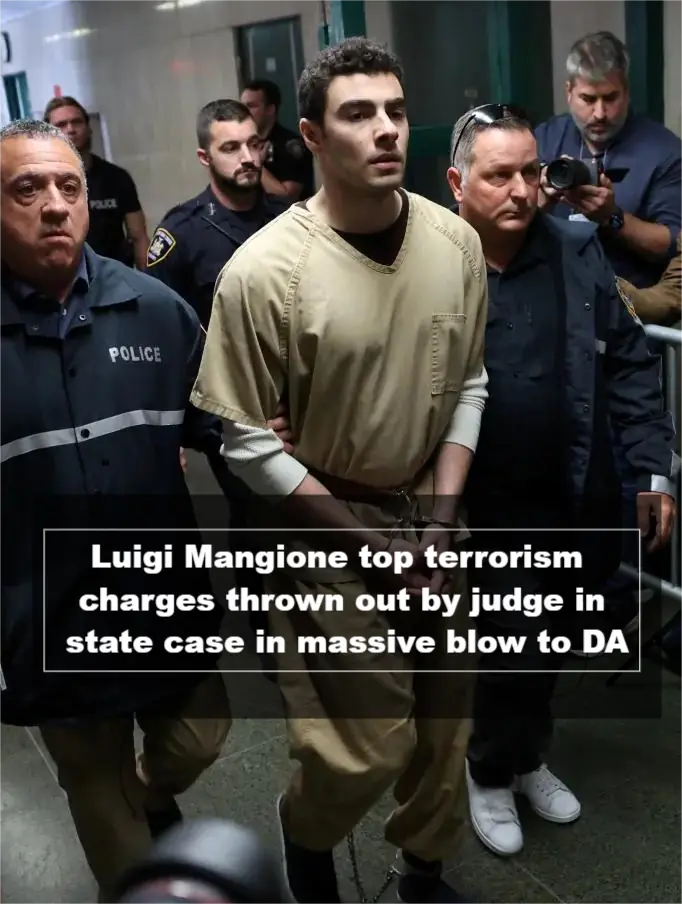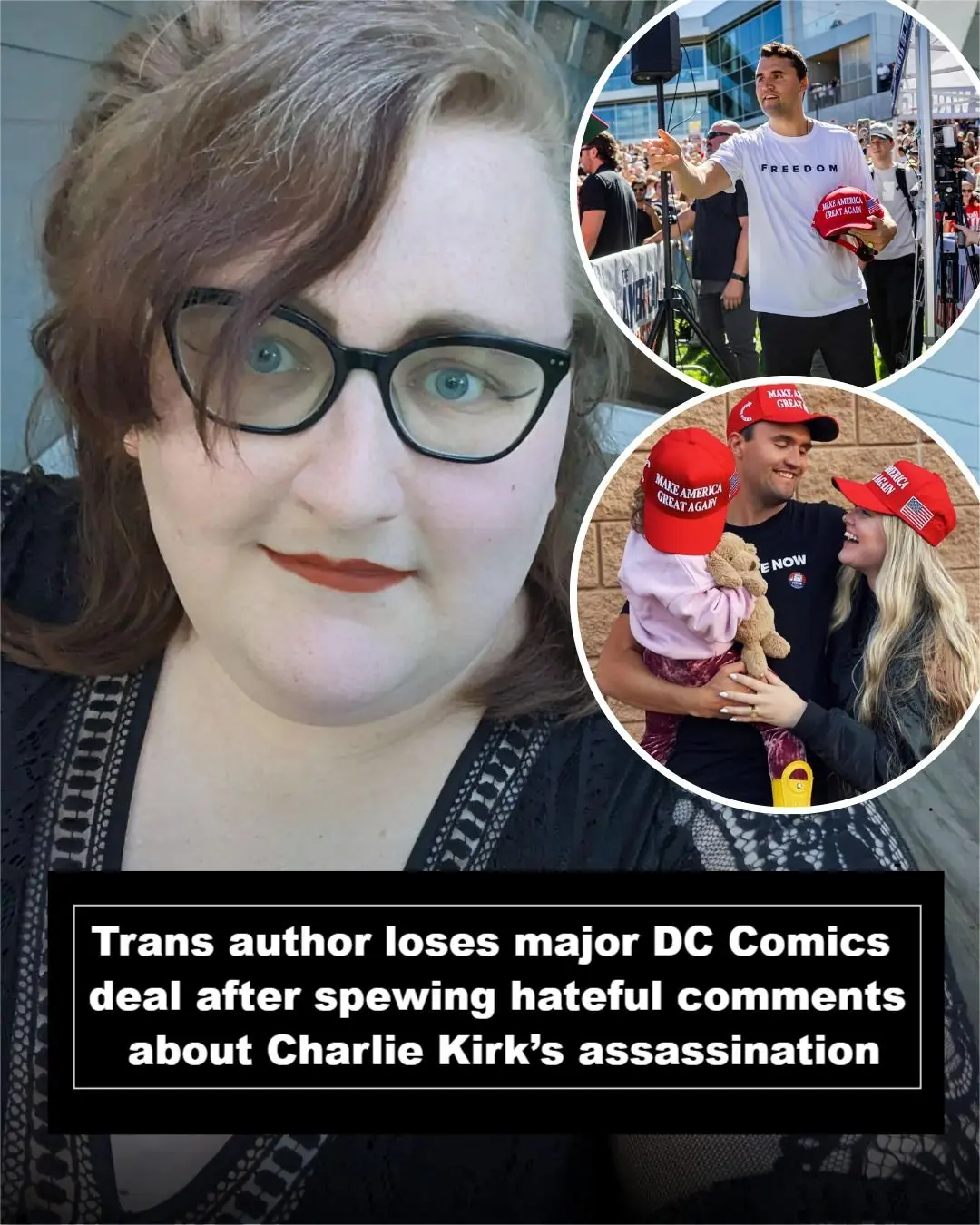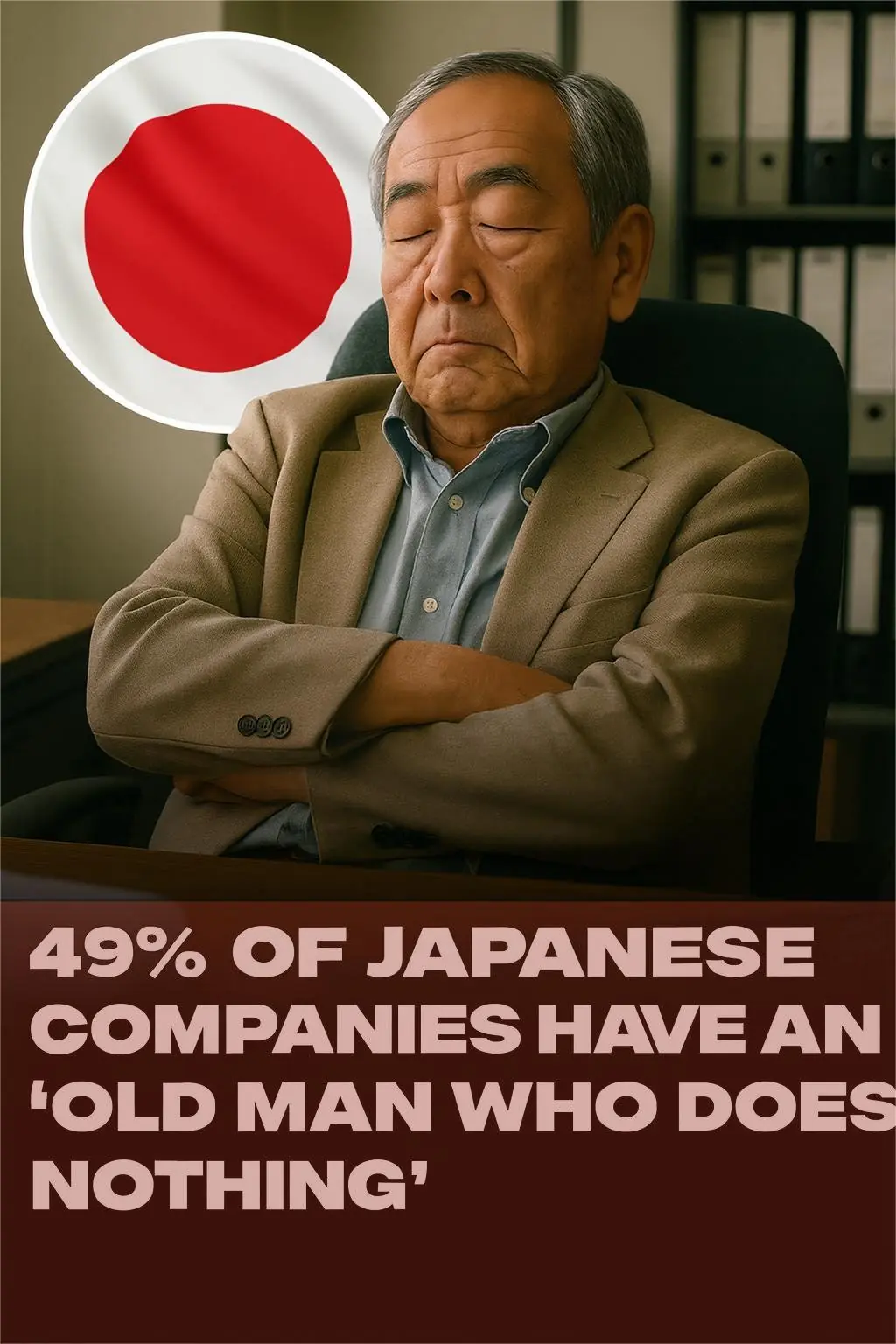
Luigi Mangione top terrorism charges thrown out by judge in state case in massive blow to DA

Manhattan, NY — In a major blow to prosecutors, a New York judge has thrown out terrorism-related charges in the high-profile case of Luigi Mangione, the Ivy League graduate accused of assassinating UnitedHealthcare CEO Brian Thompson. While the terrorism counts were dismissed, Mangione still faces a second-degree murder charge and separate federal proceedings that could carry the death penalty.
The Ruling: Terrorism Charges Struck Down
On Tuesday, Judge Gregory Carro ruled that prosecutors failed to prove Mangione acted with “terroristic intent” when he allegedly shot Thompson outside a UnitedHealthcare investor conference on Dec. 4, 2024.
“The People presented sufficient evidence that the defendant murdered Brian Thompson in a premeditated and calculated execution. That does not mean, however, that the defendant did so with terroristic intent,” Carro wrote in his decision.
As a result, the top counts — murder in the first degree as an act of terrorism and murder in the second degree as a crime of terrorism — were dismissed. This reduces Mangione’s potential state sentence: he now faces 25 years to life with parole eligibility, rather than life without parole.
The Murder Charge Still Stands
Despite the setback, prosecutors will move forward on second-degree murder charges, maintaining that Mangione intentionally killed Thompson in cold blood.
District Attorney Alvin Bragg’s office initially sought terrorism enhancements, arguing the murder was designed to “intimidate or coerce a civilian population.” But the judge found that evidence presented to the grand jury was “legally insufficient” to meet New York’s high threshold for terrorism.
Carro emphasized that Mangione’s writings suggested his objective was not to terrorize the public but to protest what he described as the “greed of the insurance industry.”
Background: A Calculated Attack
Prosecutors allege that Mangione ambushed Thompson outside the Midtown Hilton in Manhattan, firing at close range. The bullets recovered bore engravings such as “deny,” “depose,” and “defend” — words prosecutors say were meant to echo insurance industry practices of rejecting medical claims.
Thompson, a father of two, was pronounced dead at the scene, sending shockwaves through both Wall Street and Washington.
Courtroom Drama
Mangione appeared in Manhattan Supreme Court on Tuesday, dressed in a tan prison uniform over a maroon shirt, shackled as he was led into the courtroom. Despite the grim charges, he raised his eyebrows and acknowledged a group of roughly two dozen supporters — many young women — who filled the gallery.
Outside, demonstrators carried signs reading “Healthcare is a Human Right” and “Not Guilty,” framing Mangione as a political dissenter rather than a terrorist. Some wore “Free Luigi” shirts, underscoring the case’s growing polarization.
Federal Case and Death Penalty Risk
Even with the state’s top charges dismissed, Mangione’s legal jeopardy remains severe. He faces separate federal charges where prosecutors have already indicated plans to seek the death penalty, an exceptionally rare step in New York cases.
U.S. Attorney Pam Bondi has said the federal government will argue Mangione’s actions meet the threshold for capital punishment due to the premeditation and symbolic targeting of a healthcare executive.
What Comes Next
-
State case: Mangione is scheduled to return to court on Dec. 1 for pretrial proceedings.
-
Federal case: A hearing is set for Dec. 5, where the Justice Department will outline its death penalty request.
If convicted in state court, Mangione faces 25 years to life in prison with parole eligibility. If convicted federally, he could face execution.
Broader Implications
The ruling highlights the difficulty prosecutors face when trying to apply terrorism laws outside of traditional extremist or political violence cases. Legal experts previously warned that charging Mangione as a terrorist was “a reach,” noting that New York typically reserves such counts for cases involving attacks on law enforcement, public officials, or mass intimidation campaigns.
For now, the case will proceed as a high-profile murder trial, while the looming federal prosecution keeps open the possibility of the ultimate penalty.
⚖️ Bottom line: Luigi Mangione may have avoided terrorism charges in state court, but he still faces the prospect of spending life behind bars — or even execution — for the assassination of a Fortune 500 CEO.
News in the same category


Trans author loses major DC Comics deal after spewing hateful comments about Charlie Kirk’s assassination

German Leopard Tank Cut in Half – You Won’t Believe What’s Inside!

iPhone users are raging over new iOS update — claiming it drains batteries faster than ever

Japan’s New Silent Café: A Haven of Calm, Connection, and Inclusion

Half of Japanese Companies Report Having an “Old Man Who Does Nothing,” Survey Finds

The 14-Year-Old Innovator Who Built an AI App to Detect Heart Problems in Seconds

A Curious Tale from Edo Japan: The Servants Who “Took the Blame”

The Quokka: The World’s “Happiest” Animal with a Surprising Survival Strategy

The Silent Cost of Cutting Down Urban Trees

The Buffalo and the Bridge: What a Viral “Huawei Interview Question” Reveals About Business Thinking

China’s Bone Glue “Bone-02” Promises Rapid Fracture Repair in Minutes: A Game-Changer in Orthopedics

Scorpion Venom: The World’s Most Expensive Liquid and Its Promise in Medicine

Russia’s Vast Time Zone Divide: Where Day and Night Collide

Saudi Arabia Unveils Ambitious Qiddiya F1 Circuit with Towering 20-Storey First Corner

Bob the Golden Retriever: The Dog Who Found Family in Eight Birds and a Hamster

Are Cell Towers Harming Our Trees? The Hidden Cost of Wireless Technology

🍫 Chocolate Cream Layer Cake Recipe

First Direct Image of a Sun-Like Star Hosting Multiple Exoplanets Captured
News Post

My Mother Couldn’t Walk Because of Knee and Bone Pain Until She Tried This! 🤩

Oregano: The Golden Herb for Eye Health
Oregano: The Golden Herb for Eye Health

Ignite Your Day: The Banana-Coffee Power Combo You’ll Wish You Tried Sooner! 🚀
Ignite Your Day: The Banana-Coffee Power Combo You’ll Wish You Tried Sooner! 🚀

Can Garlic and Black Pepper Relieve Leg Pain and Arthritis?
Can Garlic and Black Pepper Relieve Leg Pain and Arthritis?

Aloe Vera, Cloves, and Garlic for Intestinal Health: Benefits and Precautions

Miracle Plant Water: Heal Skin, Flush Toxins, and Say Goodbye to Stones & Infections!

All DNA and RNA Bases Found in Meteorites: Life’s Origins May Be Cosmic

🌑 The Longest Total Solar Eclipse of the Century – August 2, 2027 🌑

Trans author loses major DC Comics deal after spewing hateful comments about Charlie Kirk’s assassination

German Leopard Tank Cut in Half – You Won’t Believe What’s Inside!

iPhone users are raging over new iOS update — claiming it drains batteries faster than ever

Doctor reveals the one thing you should avoid doing if you wake up during the night

Claim: a juice regimen reportedly cleared can:cer cells in 42 days

Festive Chocolate & Coffee Layer Cake

Winter Wonderland Blueberry & White Chocolate Cake

Mini Chocolate Drip Cakes

Festive Chocolate Layer Cake with Ganache & Berries

Japan’s New Silent Café: A Haven of Calm, Connection, and Inclusion
